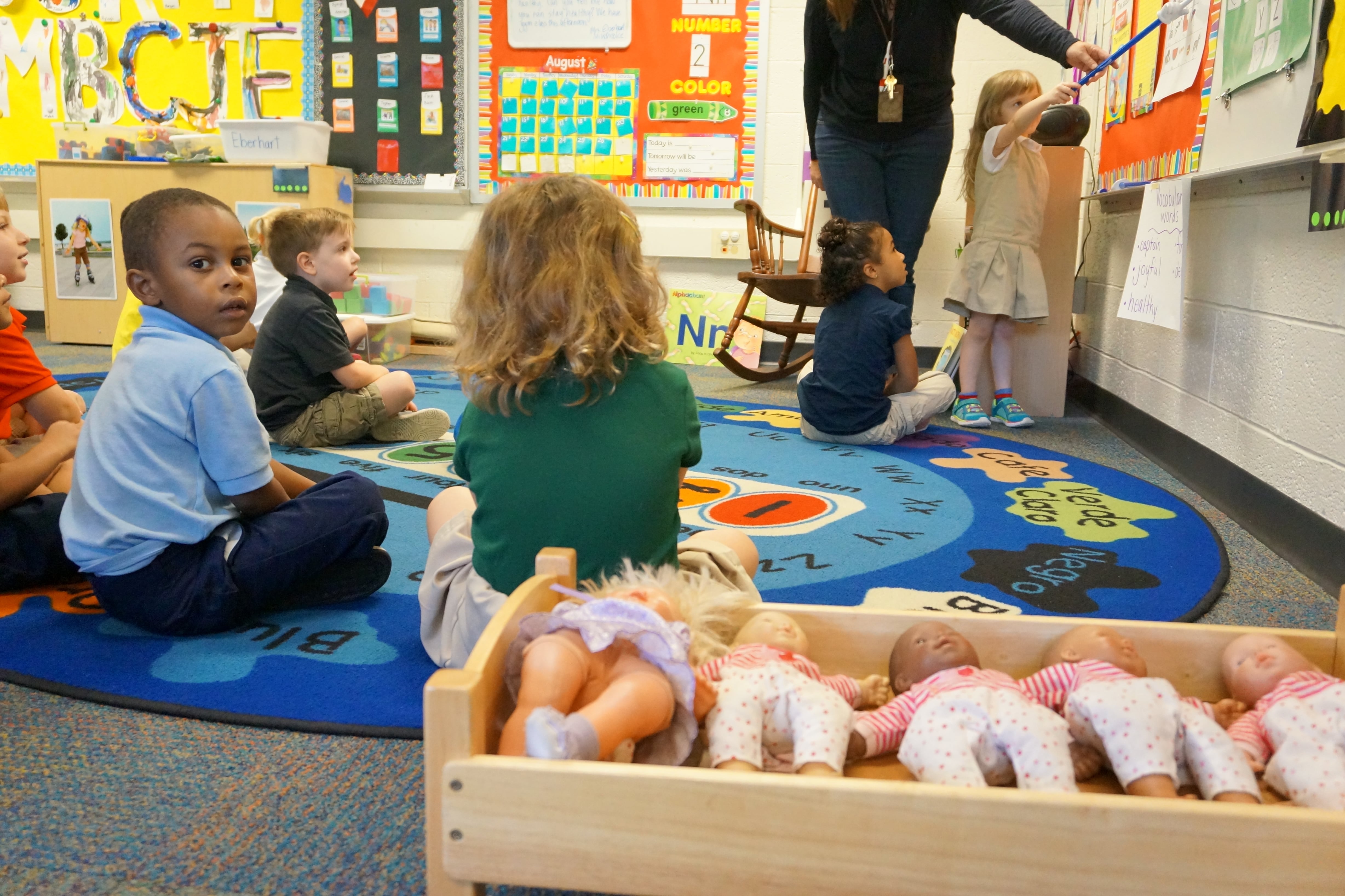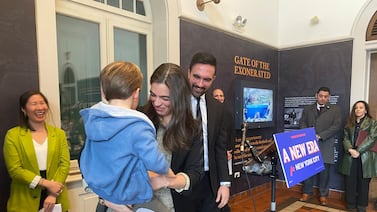Indiana will not increase state funding for its youngest learners in the next two years, but thanks to federal stimulus funds, has already ramped up vouchers for prekindergarten and child care.
The state’s budget for pre-K will remain steady in the next two years — $21 million annually — funds that residents with the lowest incomes may use for state-approved programs for 4-year-olds.
Advocates of prekindergarten are taking that as good news.
“We were completely pleased to see the state continue the investment at the same level,” said Anne Valentine, vice president of government relations for the United Way of Central Indiana. The non-profit organized an advocacy push for early childhood education in 2016.
Advocates felt it would be difficult to make the case this year for expanding Indiana’s pre-K voucher program, known as On My Way Pre-K, after enrollment plummeted during the pandemic by 40%. Only 2,000 students statewide are participating in that program now.
Indiana has forecasted an unexpected $2 billion revenue windfall over the next two years, but Democratic proposals to spend more on preschools failed to win support from Republicans who control the statehouse.
Still, Indiana expects to expand early education access through about $1.1 billion in federal funds for preschool and for programs focusing on children from birth to 12 years, said Maureen Weber, president and CEO of the Early Learning Indiana, which offers help to child care providers statewide.
The state will provide up to 50,000 pre-K and child care vouchers to low-income Hoosier families working in essential jobs for each child age 12 and younger. Families may use funds for costs incurred through October for their children’s early care and education, summer learning, or out-of-school care.
“It’s really important to do everything we can to put children back on track as soon as we can,” Weber said.
One study has shown stronger school readiness and academic skills among children who have attended preschool through On My Way Pre-K.
But the program has struggled to attract students.
Some families avoided preschool because of the pandemic, Weber said. On My Way Pre-K has also been slow to grow in the six years since its start, particularly in rural areas with fewer state-approved programs.
Whatever the reason, Republicans in the legislature balked at dedicating more money to pre-K — even though they recently approved an expansion of private school vouchers that could increase costs by 50% and increased K-12 funding by an unprecedented $1.9 billion over two years.
A Democratic amendment to add $100 million in the two-year budget for pre-K failed to win Republican support.
Rep. Robert Behning, R-Indianapolis, House Education Committee chairman, said he worked closely with pre-K advocates but that the uncertainty about enrollment and available federal funds “made it difficult to advocate for significant increases when not all of the funds that were available were utilized.”
Behning said, though, that the state will make more pre-K vouchers available by leveraging federal funds. The move aims to expand voucher access to more families earning from 127% to 185% of the poverty level — about $33,500 to $49,000 for a family of four. However, Behning did not say how many more vouchers would be funded.
At a minimum, Valentine said, she hopes the state will fund 4,100 children through On My Way Pre-K next school year, but thinks the number probably will be greater. The state can roll over unused funds to the next year, she said.
“We’re hoping that as people go back to work and begin enrolling their kids in child care and high-quality pre-K, we will see an increase in demand,” Valentine said. “Hopefully, we’ll be able to meet that demand in the next two years and more state funds could be added in the next biennium.”
Behning said he has a “significant commitment” to pre-K education but expects funding will need to grow over several two-year budgets, as happened to funding for full-time kindergarten.





